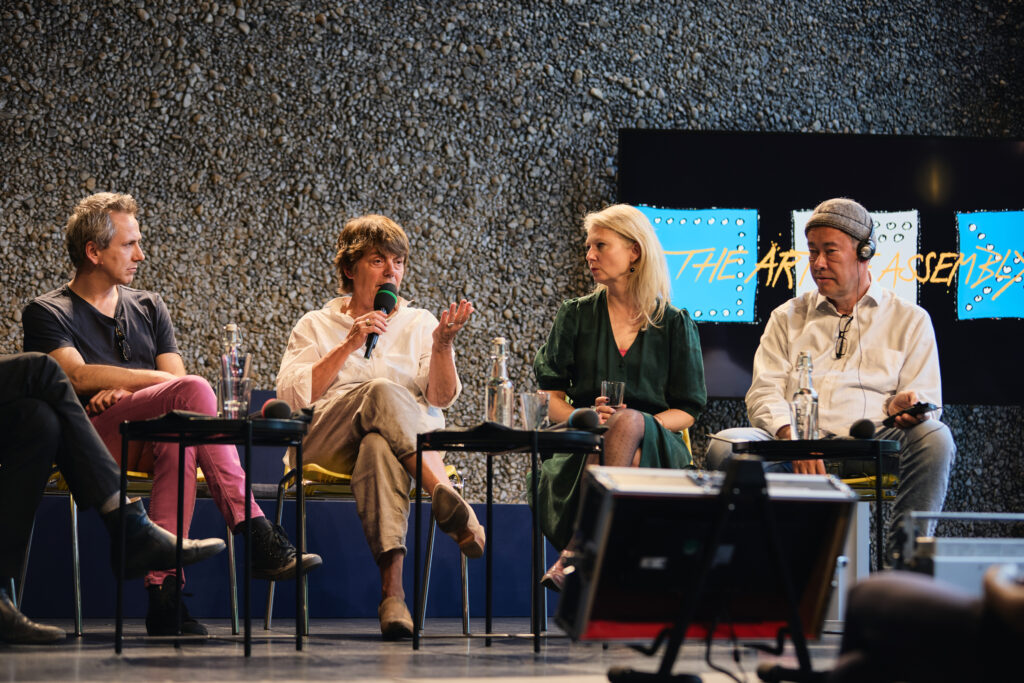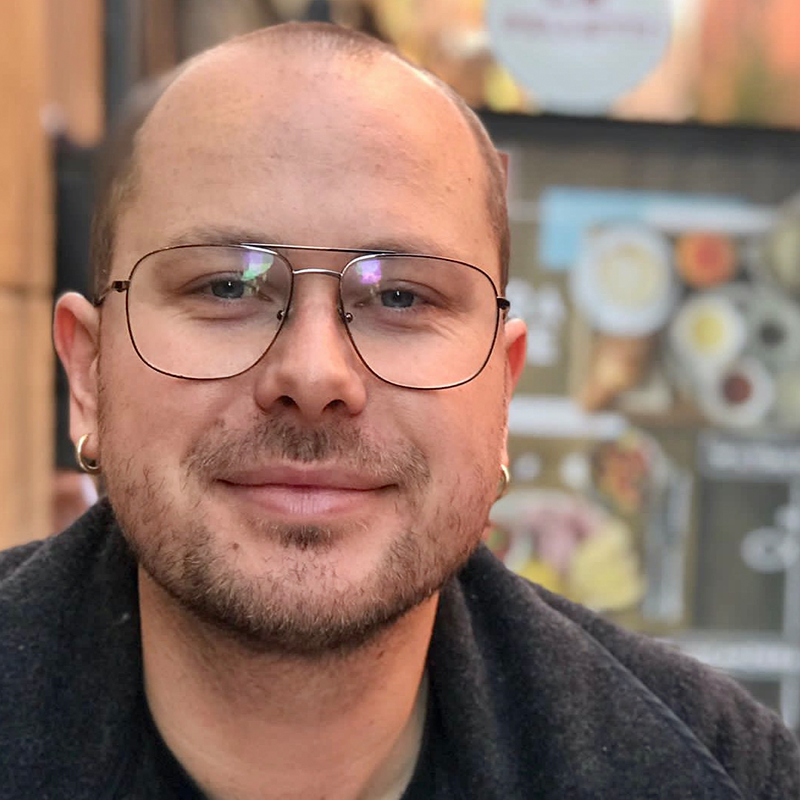The threat of the new right to German cultural institutions seems a long way away on this balmy Friday afternoon towards the end of the Theatertreffen festival, in the auspicious surroundings of the sun-dappled foyer of the Haus der Berliner Festspiel. But exactly that is what is under discussion.
The Art of Assembly is a self-described “nomadic lecture series and internet platform” organised by curator, dramaturg and writer Florian Malzacher with the goal “to speculate on the potential and limits of human assemblies.” Malzacher was invited to Theatertreffen to discuss what tactics and strategies artists can employ in dealing with threats and intimidation from the new right — with inputs from Gorki Theatre co-creative director Oliver Frljić; Kampnagel theatre artistic director Amelie Deuflhard; curator Joanna Warsza; and the President of the German Federal Agency for Civic Education Thomas Krüger.
Taking up space
The two theatre-makers present, Frljić and Deuflhard, explain the difficulties of engaging directly with the new right in their professional work. Frljić says he has been “traumatised” by his experiences with the new right in Croatia, for example when the state theatre in Rijeka was besieged by hundreds of nationalist activists during a play he staged that was critical of the patriarchal nature of Croatia’s 1990s war of independence. But since being based in Berlin, he has undertaken projects that involve what he calls “subversive collaboration” with the new right. In his 2018 show “Gorki — Alternative für Deutschland?” he attempted to encourage members of the Gorki Theatre to join the AfD. This was not to be; he called it “my dearest theatrical failure.”
Meanwhile for Deuflhard, professional engagement with the new right is something she avoids. She describes her theory of “solidarity of space-taking” in which she uses “vigilant calmness” to create diversity-focused social justice culture projects and take up public space, for example in the artistic interventions during the “Lampedusa in Hamburg” pro-refugee protests. She advocates for humour and fun in everything she does, including in disagreement — “there is a joy in conflict.” But she will not go so far as to give a platform to the new right: “The new right is a bit like dealing with a toxic partner,” she says. “The best thing to do is simply to do your own thing.”
Perhaps this idea of “doing your own thing” is more realistic in places where the new right is less present. Deuflhard is based in Hamburg, a city she describes as an “island of the blessed” where the AfD regularly poll “only” 8.5% and local politicians are largely cooperative with her theatre’s aims — although she also mentions that the new right have staged attacks on cultural institutions there. In contrast, curator Joanna Warsza comments that after working in the arts in Poland under the eight-year rule of right-wing populist Law and Justice party, she is “speaking from a future that will hopefully never come to Germany.”
Risky theatre?
For all the speakers, risk-taking is key in dealing with the threat of this potential future; for example by staging political plays that are openly critical of the new right. Yet Theatertreffen seems to have made a choice this year to largely avoid productions that specifically deal with current German political debates. Of course, Ulrich Rasche’s “Nathan der Weise” confronts antisemitism; Falk Richter’s “The Silence” is indirectly critical of Germany’s memory culture; and Yael Ronen’s “Bucket List” contains veiled references to the terrorist attack by Hamas on Israel on 7th October 2023.
Otherwise the selection is — arguably — made up of safe choices in a country where the cultural hegemony is shifting further right. Furthermore, only one of the productions for Theatertreffen this year comes from a theatre in a former east German state — “Hundekot-Attacke” from Theaterhaus Jena in Thuringia, where the AfD are currently polling at around 30%.
The shift right
Additionally, the issue of what Frljić called the “widespread cancelling” of cultural figures who criticise the German establishment’s ongoing support for the Israeli government’s actions in Gaza bubbled under the discussion. Deuflhard called it “frightening” that it is increasingly difficult to bring Palestinian, or any Arab, creatives into public spaces; while Warsza said that the issue had changed Berlin’s reputation as a “promise of a post-migrant society.” And what they all remarked upon is that the threat to culture in this case is not coming from the new right, but instead from all sides of the political spectrum.
Despite this, focusing on the new right’s threat to public institutions makes a great deal of sense. The AfD are the second-most popular party at a national level; and everything from migration policies to issues of gendered language is becoming more influenced by the new right. But there does not seem to be one single functional strategy of dealing with political threats to cultural institutions. Perhaps the hope of the utopic future that all the speakers referenced, however unlikely that may be, is needed in order to address this threat.

